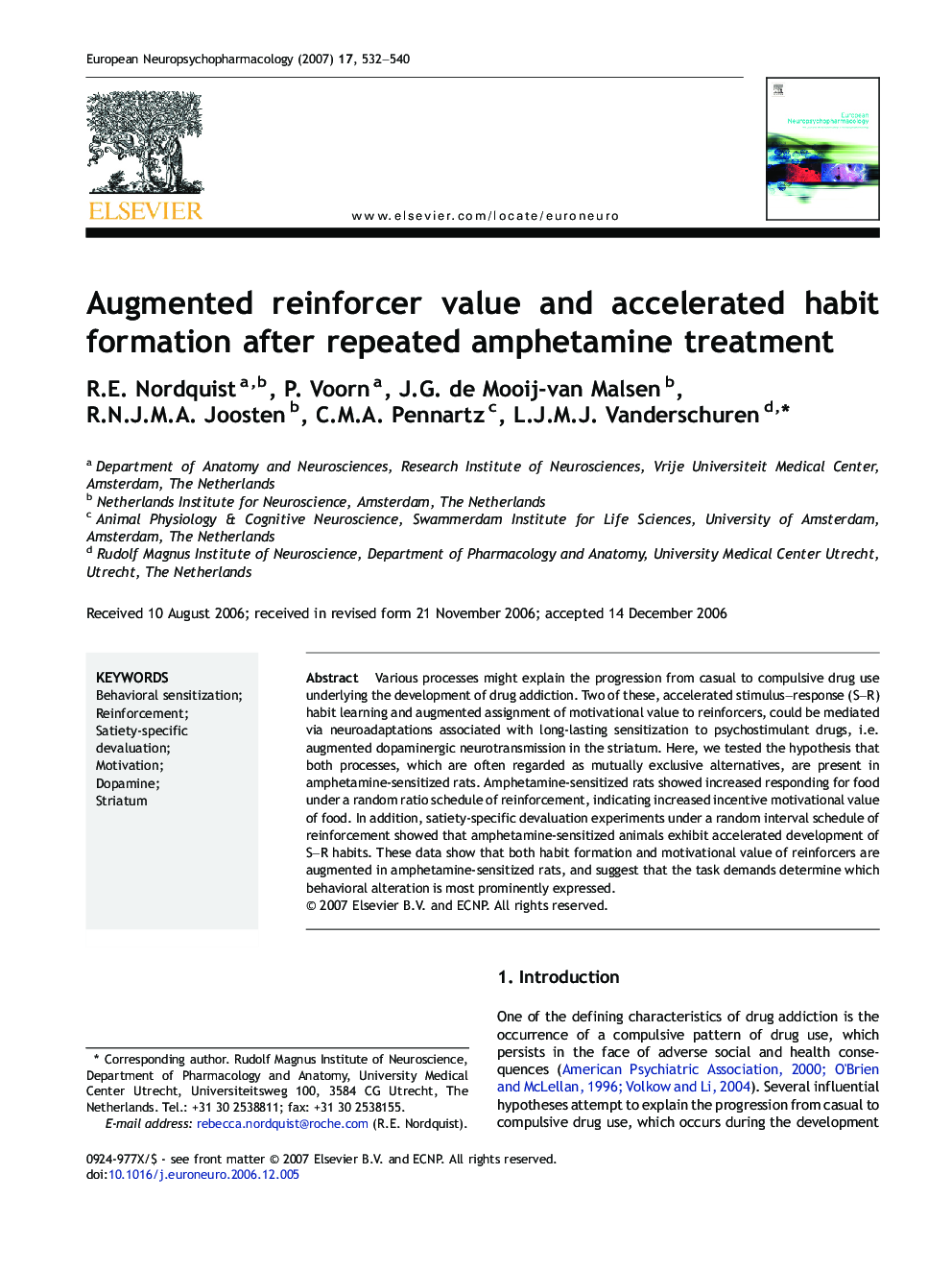| Article ID | Journal | Published Year | Pages | File Type |
|---|---|---|---|---|
| 321413 | European Neuropsychopharmacology | 2007 | 9 Pages |
Various processes might explain the progression from casual to compulsive drug use underlying the development of drug addiction. Two of these, accelerated stimulus–response (S–R) habit learning and augmented assignment of motivational value to reinforcers, could be mediated via neuroadaptations associated with long-lasting sensitization to psychostimulant drugs, i.e. augmented dopaminergic neurotransmission in the striatum. Here, we tested the hypothesis that both processes, which are often regarded as mutually exclusive alternatives, are present in amphetamine-sensitized rats. Amphetamine-sensitized rats showed increased responding for food under a random ratio schedule of reinforcement, indicating increased incentive motivational value of food. In addition, satiety-specific devaluation experiments under a random interval schedule of reinforcement showed that amphetamine-sensitized animals exhibit accelerated development of S–R habits. These data show that both habit formation and motivational value of reinforcers are augmented in amphetamine-sensitized rats, and suggest that the task demands determine which behavioral alteration is most prominently expressed.
